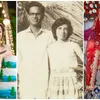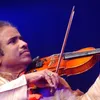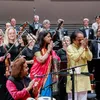How Bindu and Ambi Subramaniam's SaPa is using music to help children cope with the pandemic
On World Music Day, Ambi and Bindu Subramaniam reveal how their music academy, SaPa, is using music to prioritise children’s emotional wellbeing amid the pandemic.
When the entire world went into a lockdown of sorts in 2020, life as we knew it came to a standstill, and almost everything moved online, including mainstream education.
Siblings Ambi and Bindu Subramaniam instinctively knew that if ever there was a time for music to shower its healing powers, this was it.
“We decided to use music education to prioritise children’s emotional wellbeing,” says Ambi, who along with his sister, Bindu Subramaniam, runs Bengaluru-based Subramaniam Academy of Performing Arts (SAPA).
Children of violinist L Subramaniam and late singer Vijayashree, Bindu and Ambi are zealous in their passion to hone the next generation of musical talent through their academy.
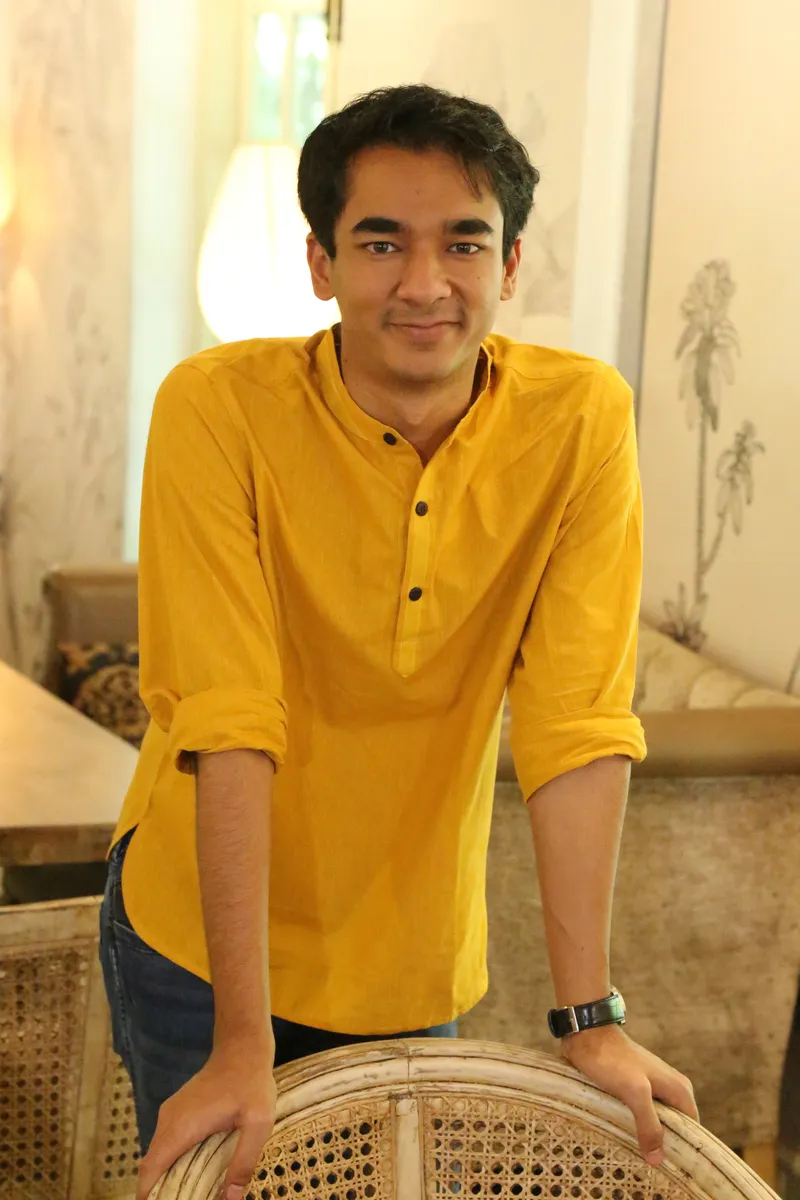
Ambi Subramaniam
The world of online
Over the last year, the duo has moved all classes online, and is consistently working towards creating online content that’s engaging for their over 30,000 student base every year. “It’s been great to see that our students have been using this time indoors to spend more time with music,” Ambi says.
He says when they first took the curriculum online, they made sure it included not just songs, but also musical activities, stories, and games that build on the pillars of social-emotional learning.
“Children were encouraged to work with their hands and keep moving, and we used storytelling to help them cope better with uncertainty,” says Ambi.
SaPA recently launched an online learning platform with self-paced courses for adult learners as well - led by some of the world’s best musicians like Dr. L Subramaniam, Kavita Krishnamurti Subramaniam, Usha Uthup, Anup Jalota, Pankaj Udhas, Shantanu Moitra, American Idol drummer Russ Miller, and many more.
On this, Bindu says, “This World Music Day, we are celebrating the many ways in which music has made our lives a little better. Our learning platform is up and running, and offering an insight into the careers of the most iconic musicians.”
SaPA is also partnering with Duroflex on their Sounds of Sleep campaign, which explores the connection between music and a good night’s rest, and works on unearthing India’s rich collection of lullabies.
“We are continuing to battle uncertainty in every way, but we are grateful for the role music has played in making it a little easier on us,” Bindu says.
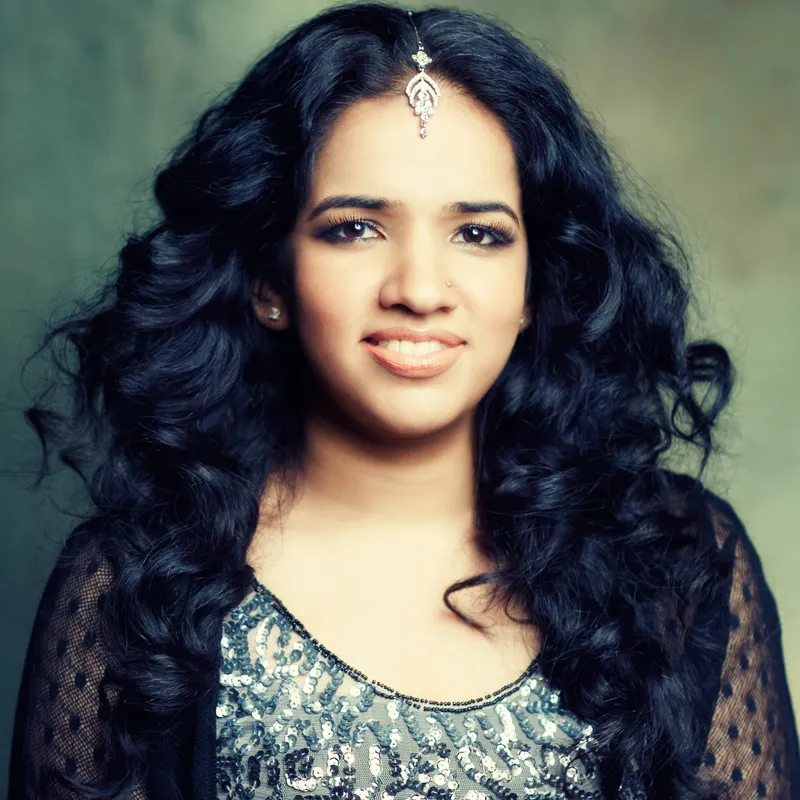
Bindu Subramaniam
Music from when they can remember
For both Bindu and Ambi, music has been an integral part of their growing years. When he was six, Ambi had started performing the violin along with his father, the famous violinist, L Subramaniam.
“I had a tiny violin when I was three years old, and I thought of it more as a toy than anything else. The idea was to imitate whatever my dad was doing,” says Ambi in a conversation with YourStory Weekender. He was proclaimed “India’s 24-year-old Itzhak Perlman” by Ozy Magazine.
His sister Bindu Subramaniam has been performing since she was 12. She went to Berklee College of Music in Boston, a top music college and performing arts conservatory.
She says, “My mother was an amazing singer. I was always enchanted by her voice and the ethereal quality it had. Being in the US, I didn't always realise how famous my parents were. All these musical legends were just uncles and aunties to us. But music was always around us. We had music lessons and there was always music playing in the house. We used to get to hang out in the studio - I think my first time on the mic was as a very young kid singing happy birthday as part of a chorus for a Mira Nair film.”
Bindu today brings a pop-rock element to music and has collaborated with the likes of George Duke, Dr M Balamuralikrishna, Remo Fernandes, Pankaj Udhas, Hariharan, AJ Jarreau, Larry Coryell, Corky Siegel and Pandit Jasraj to name a few.
“My parents, Dr L Subramaniam and Kavita Krishnamurti Subramaniam, started SaPa in 2007, to build a home for great music and musicians. My brother Ambi and I took over in 2011, and we have been building on this shared vision ever since,” Bindu says.
Music for every child
When the siblings started running SaPa, they wanted to make sure that they were giving every child an opportunity to be more connected to their cultural roots and build a long and fulfilling relationship with music - whether they come from a musical background.
“To us, music is not just a feel-good element. It is a powerful tool, capable of creating large-scale transformation. And we want to make sure that it is accessible to everyone who wants it. Everything we do is about this central idea - to give everyone access to quality music education,” says Bindu.
She adds many of their students are first-generation learners who started with SaPa when they were three years old. Today, Bindu explains they are teenagers and are performing at a semi-professional level to hundreds of thousands of listeners.
Apart from SaPa, the brother-sister duo also had a band, SubraMania, in 2013. The name SubraMania comes from an old inside joke in the family – when their father was in Russia in the '80s, his name was advertised in Cyrillic mistakenly as Supermaniac. “So if he was a Supermaniac, we are SubraMania,” Bindu jokes.
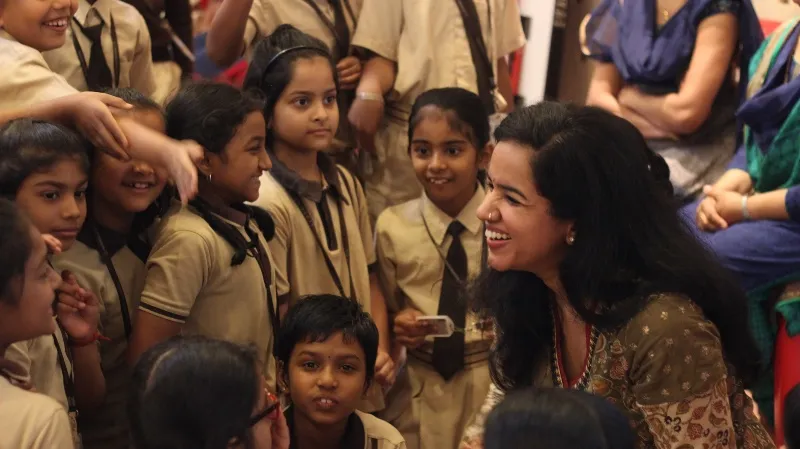
Bindu with children at the music academy prior to the pandemic
The next Shyama Shastri
Whether it was a mania or a love for music, the siblings today are deeply immersed in their work at SaPa. Ambi says,
“We know how important it is that children enjoy while they learn music, and have fun as they build their musical path. Everything at SaPa is designed to make learning fun - from our SaPa textbooks designed for children of all ages, to our Baby Rooms, to our Baby Dikshitar, Shyama Shastri, and Tyagaraja illustrations in the course material.”
Bindu says when starting up they were first movers in a market that was yet to be fully convinced about the value of what they were offering at the time. Today, she adds that the edtech and music space is filled with players, and arts education is very popular.
The siblings had to spend a lot of time convincing parents and educators to integrate music into the lives of children.
“When we first started working with government schools, our main challenge was to get the necessary permissions. Once we were able to navigate that, the challenge then became to make some of our work more relevant to this audience.”
The music curriculum did create the same impact, but the textbooks needed to be translated. The siblings would also have to talk to a few parents who felt music was distracting their child from learning subjects like math or science.
“In these cases, we’ve been fortunate to have the schools’ support; the principal would counsel the parents and tell them why music is an important subject. And after a few counselling sessions, the parents see the benefits of what we’re doing as well,” Bindu says.
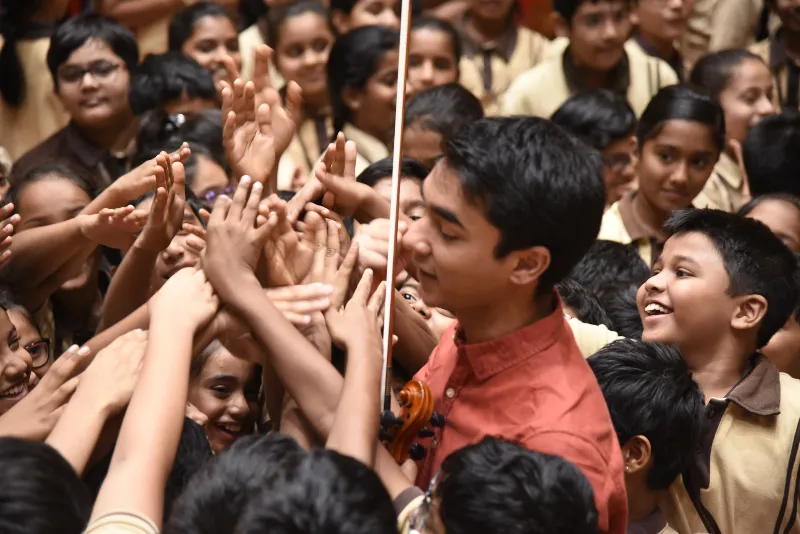
Ambi with the school's children prior to the pandemic
Working with newer constraints
In 2020, Ambi says, they had to work around numerous new constraints, the biggest one being going online.
For Bindu and SaPa, the larger vision is to make quality music education accessible to every learner. SaPa currently does this in several ways - they conduct ongoing classes across disciplines (Indian and western vocals and musical instruments).
Back in 2014, the duo had started the SaPa in Schools programme - which works with over 100 school partners to integrate music in the curriculum, and helps students use music as a gateway to building 21st century skills like teamwork, empathy, and communication.
The newly launched online learning platform is designed for older learners as well, and includes courses by celebrity musicians from around the world.
“SaPa helps young learners build a strong musical foundation and design a learning path that works for them. It also trains educators in the SaPa method, and provides employment opportunities for mothers re-entering the workforce and young musicians who want to pursue their passion while earning a sustainable livelihood,” says Ambi.
Speaking about the days ahead, Bindu says, “We’re currently working on an app for learners between three and six years old, and a subscription box for all ages - starting from pregnant women in their final trimester,” Bindu says.
Edited by Anju Narayanan




